
Pr. Emanuel Schneck, Technische Universität Darmstadt (Germany)
 |
Prof. Dr. rer. nat. Emanuel Schneck studied Physics at Technical University of Munich (TUM) and received his Ph.D. in 2010 from Heidelberg University. After postdoctoral assignments at TUM and the Free University of Berlin, he went to Institut Laue-Langevin (Grenoble, France) as a Marie Curie fellow in 2012. In 2014, he became research group leader at the Max Planck Institute of Colloids and Interfaces in Potsdam, supported by an Emmy-Noether grant from the German Research Foundation (DFG). Since 2019 Emanuel Schneck has been Professor of Physics at Technical University of Darmstadt. His current research is focused on biological and biotechnologically relevant soft interfaces and their investigation with x-ray and neutron scattering techniques as well as molecular simulations. |
Pr. Jetty Chung-Yung Lee, University of Hong Kong (Hong Kong)
 |
Jetty Chung-Yung Lee is a Professor at the School of Biological Sciences, The University of Hong Kong. For over 25 years, her research work has been centred around lipids namely oxidized omega-fatty acids as specialized lipid mediators and biomarkers in human diseases. She has developed analytical methods in lipidomics that are applied in numerous model systems e.g. cells, rodent tissues and human biological fluids, and more recently in hepatopancreas, gonads and guts of marine species. Using robust analytical tools, she integrated the knowledge into her current research that focuses in oxidized lipid mediators in health and diseases, and the environment and marine ecosystem. To highlight, in recent findings, she found omega fatty acids are good biomarkers to assess oxidative stress in mangrove crabs, oysters and corals. Visit her website. |
Dr. Elizabeth (Liz) Hambleton, University of Vienna (Austria) – CANCELLED
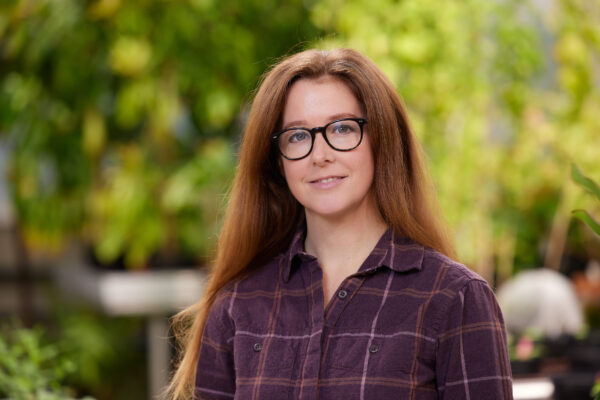 |
Dr. Elizabeth (Liz) Hambleton is a Group Leader in the Division of Microbial Ecology within the Centre for Microbiology and Environmental Systems Science at the University of Vienna. Originally from the USA, her doctoral work was at Stanford University followed by a postdoc at the University of Heidelberg. Throughout her career, Hambleton has been an expert in developing the marine sea anemone Aiptasia as a laboratory model to investigate the molecular mechanisms of coral-algal symbiosis. Since its establishment in 2020 in Vienna, her group is studying the evolution and molecular mechanisms of diverse, ecologically important symbioses between marine invertebrate animals and algae (‘photosymbioses’). Her research uses a combination of single-cell transcriptomics, lipidomics, mass-spectrometry imaging, and functional manipulation in both cnidarian systems such as Aiptasia and corals, as well as in a new model system that her group has established with the marine acoel flatworm Waminoa. Overall the aim of her work is to understand globally widespread and evolutionarily important photosymbioses and their response to environmental change. Visit her website. |
Dr. Gauthier Schaal, University of Bretagne Occidental (France)
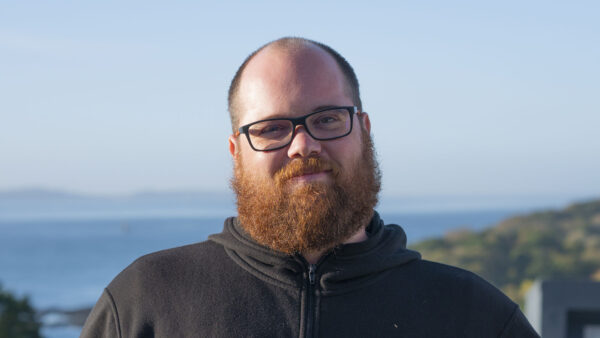 |
Gauthier schaal is an associate professor at UBO, whose research ranges from community ecology to physiology, with the aim of understanding how the diet of marine organisms contributes to influencing ecological processes structuring biological assemblages at different scales. He uses a variety of trophic ecology approaches, including lipids (fatty acids, sterols), stable isotopes (carbon, nitrogen, mercury) and trace metals, on biological models ranging from benthic invertebrates to pelagic top predators. Among his main scientific interests is the importance of understanding the metabolic mechanisms likely to affect the use of lipids as trophic biomarkers. The dynamic nature of interactions between dietary inputs and metabolic requirements confers on any biomarker a number of inherent limitations, the characterization of which is a prerequisite for any use in trophic ecology. These limitations also highlight the need to develop couplings between complementary approaches. However, the conceptual framework for integrating these different approaches has yet to be developed. Visit his webpage. |
Dr. Alex Bec, University of Clermont Auvergne (France)
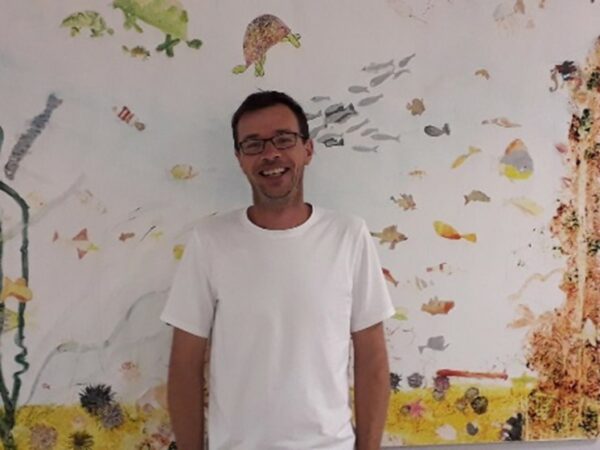 |
Dr. Alexandre Bec teaches functional ecology and limnology at the University of Clermont Auvergne. Most of his research has been dedicated to the study of the transfers of essential compounds within aquatic food webs and more especially at the microbes-metazoan interface. He also led the CNRS Research Group on Trophic Ecology (GRET 2013-2023). His research has evolved into metabolic ecology and aims to understand the impact of nutritional constraints on the performance and energy budget of organisms in the context of global change. |
Dr. Jaques Delarue, University of Bretagne Occidentale (France)
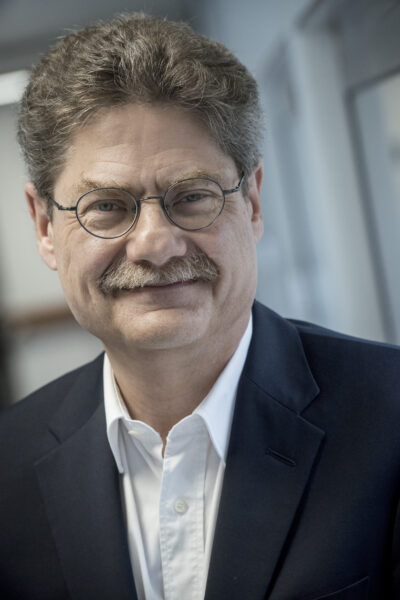 |
Jacques Delarue is MD, PhD, Professor of Nutrition at Brest University since 2000. His field of research is about the protective effect of long chain omega 3 fatty acids towards insulin-resistance associated to obesity and type 2 diabetes (rodent and human models). Professor Jacques Delarue is the current President of French Nutrition Society (SFN), Secretary of the Federation of European Nutrition Societies (FENS), chairman of the Task Force on Mediterranean Networking of FENS. He is Secretary General of International Union of Nutritional Sciences (IUNS) and President of IUNS-ICN Congress which will held in Paris in August 2025, co-organized by French Nutrition Society, French Federation of Nutrition, FENS and IUNS. |
Dr. Fabienne Daures, Ifremer (France)
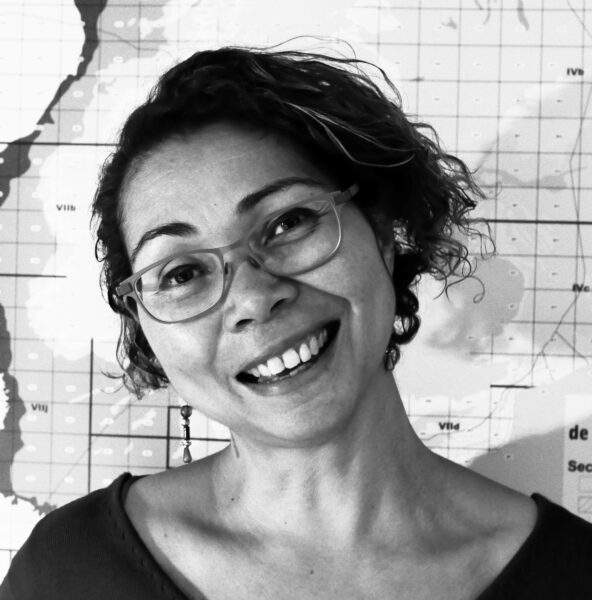 |
Fabienne DAURES is a senior economist at IFREMER and member of the AMURE research unit in Brest. Her research focuses on food and environmental transitions, and on how to help public policies to achieve these transitions. She is particularly interested in fisheries and fish markets, their specificities and dynamics in relation to those of marine ecosystems and consumer motivations. Her recent research projects have led her to study the socio-ecological systems of small pelagics (sardines) in the face of the effects of climate change on fish abundance and quality. She has also recently been working on multidimensional indicators for sustainable fisheries production systems. Finally, she has also studied the impact of crises (e.g. covid) and labelling policies as a means of increasing seafood sustainability and safety concerns. She really enjoys multidisciplinary work with different disciplinary teams as well as working on different geographical and temporal scales. She regularly takes part in expert groups for ICES (International Council for the Exploration of the Sea) and STECF (Scientific, Technical and Economic Committee for Fisheries). She is a member of IIFET (International Institute of Fisheries Economics & Trade) and EAFE (European Association of Fisheries Economists). |
Dr. Jerome Roy, INRAE (France)
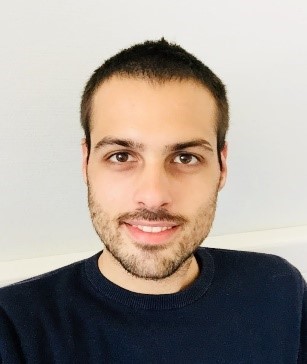 |
As an animal physiologist by training, my primary focus lies in the feeding behaviors of rainbow trout and the sensory mechanisms and pathways that regulate them. In the current global expansion of aquaculture, where it has become crucial to alleviate pressure on wild fish stocks, which partially supply fish farms (providing fishmeal and fish oil for feed), the need arises to explore alternatives and new raw materials like vegetable ingredients. Consequently, my interest lies in understanding the impact of these plant-based products, mostly lacking long-chain polyunsaturated fatty acids of the ω-3 family (LC-PUFA ω-3, DHA and EPA abundantly present in fishmeal and fish oil), on food detection and integration within the cerebral system that influences feeding behavior. In this context, my general working hypothesis is that carnivorous rainbow trout exhibit feeding behaviors closely tied to the presence of nutrients in their diet, particularly LC-PUFA ω-3. Therefore, the absence of these nutrients in plant-based diets would alter the mechanisms regulating feeding behavior, leading to consequences for optimal fish growth. Fatty acids, especially omega-3, are central to my research, and our studies demonstrate that trout have the ability to discriminate foods containing omega-3, influencing taste perception mechanisms and ultimately shaping their feeding behavior. Visit his Scopus, Webofscience |
Dr. Felisa Rey, University of Aveiro (Portugal)
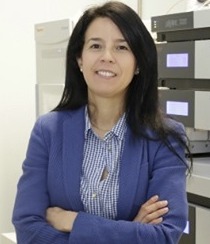 |
Felisa Rey is a researcher at the Marine Lipidomics Laboratory (University of Aveiro and CESAM, Portugal). She holds a degree in Marine Sciences (University of Vigo, Spain) and a Master’s degree in Marine Resources (University of Porto, Portugal & University of Santiago de Compostela, Spain). During her PhD, Felisa focused on investigating the significance of maternal investment and larval life in marine invertebrates with bi-phasic life cycle. Her research delved into understanding how these factors influence early life phenotypes, survival, and recruitment. It was during this period that she became immersed in the field of lipidomics, which has since become her primary area of expertise. Over the course of her academic and curricular path, Felisa has developed proficiency in analysing marine samples using a range of physiological, biochemical, and lipidomic approaches. This diverse skill set has provided her with a multidisciplinary scientific background, particularly in the study of marine invertebrates and macroalgae. Felisa’s research extends to exploring marine lipids as sources of bioactive compounds for the development of innovative applications. Her current research interests include marine lipids, photosynthetic animals, marine invertebrates and fungi, and macroalgae. She aims to leverage these interests in the development of applications within the field of blue biotechnology, contributing to the sustainable and innovative use of marine resources. Visit her website and personnal page. |
Dr. Ana Paula Alonso, BioDiscovery Institute (USA)
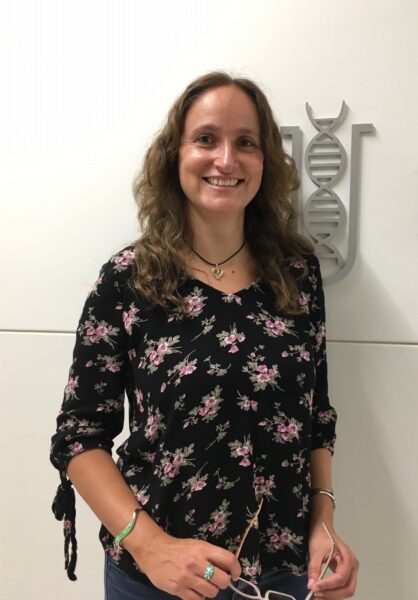 |
Ana Paula Alonso obtained her B.S., M.S., and Ph.D in Biological and Medical Sciences from the Université Victor Segalen in Bordeaux, France. After four years of postdoctoral training in oilseed metabolism (Michigan State University), and microbial metabolism (Institut National des Sciences Appliquées, Toulouse, France), she joined the Great Lakes Bioenergy Research Center in 2008 as a Visiting Assistant Professor to work in the exciting field of biofuel research. In 2010, Dr. Alonso accepted a position as an Assistant Professor in the Department of Molecular Genetics at The Ohio State University where she was the Director of the Targeted Metabolomics Laboratory; she was promoted to Associate Professor in 2016. Dr. Alonso joined the BioDiscovery Institute at the University of North Texas in 2018 and most recently appointed Associate Director of the BioDiscovery Institute; she is a Professor in the Department of Biological Sciences and the director of the BioAnalytical Facility. Her group uses innovative systems level approaches, such as metabolomics and 13C-fluxomics, to address global challenges related to food and energy security. One of her major research interests lies in storage lipids, i.e the production of (un)usual fatty acids in food crops (maize, soybean), and alternative crops with bioenergy/industrial applications (Physaria fendleri L., Thlaspi arvense L.). Visit her website. |
Dr. Sarah Coffinet, University of Rennes (France)
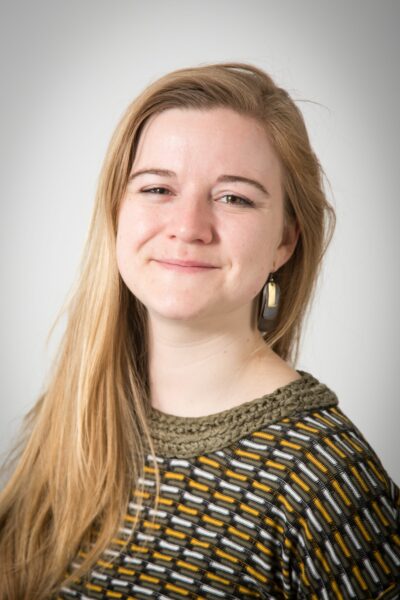 |
Dr Sarah Coffinet is an assistant professor at the University of Rennes (France) part of the ECOBIO laboratory. Her research lies at the interface between microbial ecology and organic geochemistry. Her main focus of interest is microbial metabolisms in anoxic environments and their role in the carbon cycle of wetland ecosystems. She studies how microbial diversity and activity influence organic matter dynamics and vice-versa. Her favorite tools are microbial membrane lipids that she uses to track microbial assimilation of carbon in ecosystems. She analyzes their structural diversity and carbon isotopic composition in natural sites such as peatlands or swamps. She also conducts incubations in controlled conditions with 13C-enriched substrates to follow the fate of major components of the carbon cycle such as CO2, CH4 or organic biopolymers. Visit her website. |
Dr. Frederic Beaudoin, Rothamsted Research (United Kingdom)
 |
Frédéric Beaudoin is a senior scientist in the Plant Sciences Department at Rothamsted Research and an honorary professor at the School of Biosciences at the University of Nottingham. His main interests are in plant lipid metabolism and biotechnology. He has a wealth of experience in metabolic engineering of plants (oilseeds), yeast and microalgae including 15 years investigating the biosynthesis of very long chain fatty acids and their role in growth and development. Over the past 20 years, his main research projects have involved manipulating plant lipid composition to enhance human nutrition, as well as for the sustainable production of fuel, lubricants, and chemical feedstocks. More recently, he started using high throughput lipidomic profiling and association genetics methods (GWAS) to identify the genetic components that control variation of traits representing biorefining opportunities in the oilseed crop, B. napus. His current research interests include the biosynthesis of very long chain polyunsaturated fatty acids (VLC-PUFAs), plant waxes and vegetable oil minor components such as phytosterols and tocopherols. Visit his webpage. |
Dr. Alexandre Rodrigues, Necton company (Portugal)
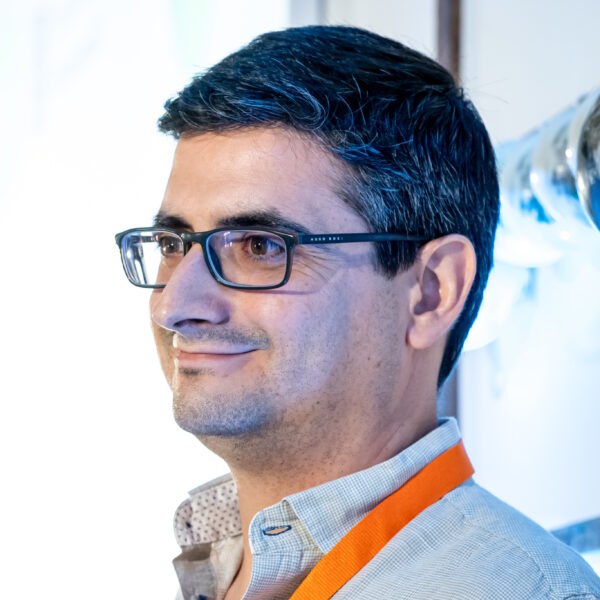 BELGIUM, BRUSSELS, SEP. 13, 2023 – Pro Future – Microalgae Copyright Danny Gys |
Alexandre Rodrigues holds a licentiate degree in Microbiology and Genetics and a PhD degree in Cellular Biology / Biomedicine, awarded by the University of Lisbon. His PhD studies, developed at the Center of Regenerative Medicine in Barcelona, focused on the regeneration capacity of aquatic animals. After his PhD, Alexandre worked as a research technician in two laboratories in Barcelona, before he moved back to Portugal to work as a post-doc at the University of Algarve. In 2017, Alexandre started collaborating with Necton S.A. in the sales team, but soon was invited to be part of the Innovation Department, given his scientific background. He was involved in R&D projects’ management and application, contributing to the growth of the Department. With an increasing number of projects and team members, Alexandre was nominated Coordinator of the Department in 2022. In 2023, Necton acquired Allmicroalgae S.A. and merged both Innovation Departments, so Alexandre is now coordinating a team of 4 post-docs, 3 technicians and 4 PhD students, supervising research trials and managing R&D projects both technically and financially. Visit his webpage. |
Pr. Michel Linder, University of Lorraine (France)
 |
Michel Linder is a professor at the University of Lorraine and teaches at the Ecole Nationale d’Agronomie et des Industries Alimentaires (ENSAIA). He conducts his research on lipids at the Laboratory of Biomolecular Engineering (LIBio). For over 25 years, his research has focused on the valorization of marine co-products rich in long-chain polyunsaturated fatty acids and peptide hydrolysates using green processes (enzymatic extraction, supercritical CO2). He is specializing in industrial process optimization (utilizing experimental and mixture design, which he also teaches at ENSAIA) and collaborates with colleagues from Hokkaido University in Hakodate, Japan, on marine resource valorization processes (including salmon co-products, squid, krill, sea cucumber, among others). He is particularly interested in marine polar lipids, naturally rich in LC-PUFAs (EPA and DHA), and in the formulation of nanovectors for the transport of hydrophilic or hydrophobic active molecules of interest – sought after in the food, nutraceutical, and sometimes health fields. Visite his webpage. |